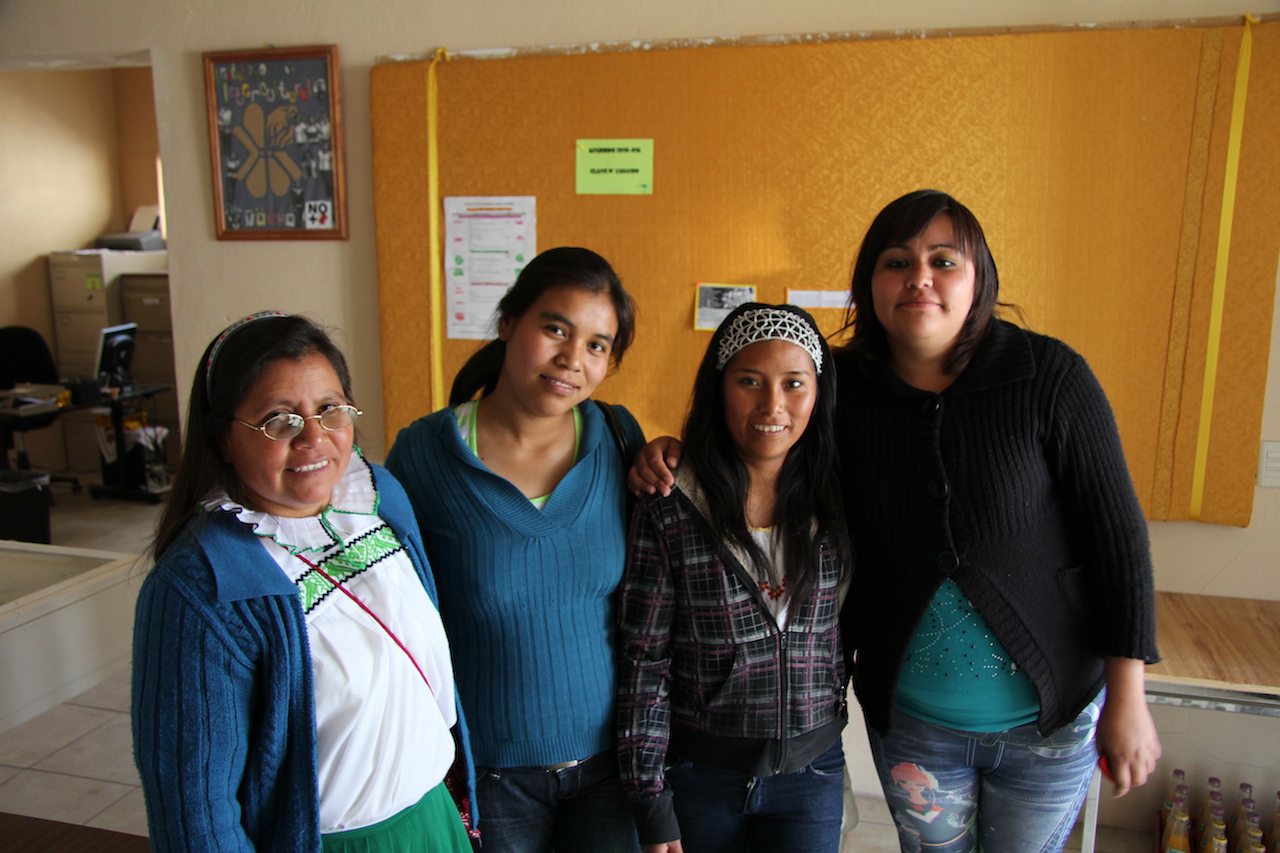Instituto Intercultural Ñöñho.
In 2012, we spent a few weeks in Mexico. We were there to meet the farmer’s co-operative, Nekutli, and learn all about the structures, working and living conditions of the members. For years now, we’ve been buying our organic Fair Trade agave syrup from Nekutli, and using it in our ChariTea ice tea.
Nekutli member Manuel Cruz introduced Lemonaider Jakob to the educational institute, Instituto Intercultural Ñöñho, and the people who run it. Since then, we’ve kept a close eye on the project and kept in touch. We’ve recently started actively supporting the institute through our charitable organisation to make sure they stay up and running.
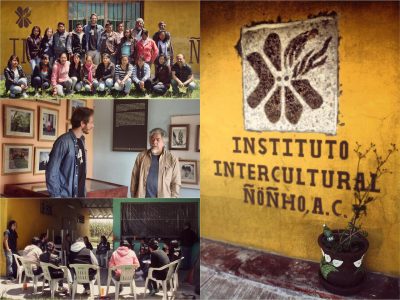
Lemonaider Felix visiting the institute in August 2014.
About the region.
The Mexican state of Querétaro is in the highlands at the heart of Mexico, and has around 1.5 million inhabitants. People there live mostly off the land; only the area around the state capital, Santiago de Querétaro, is largely industrial. The tourist industry is growing steadily, too.
In rural areas, there is still a large group of indigenous people who make a living from corn, coffee and beans. Only around 60 percent of the population have any education after primary school. In the countryside, there is generally no mains electricity or water.
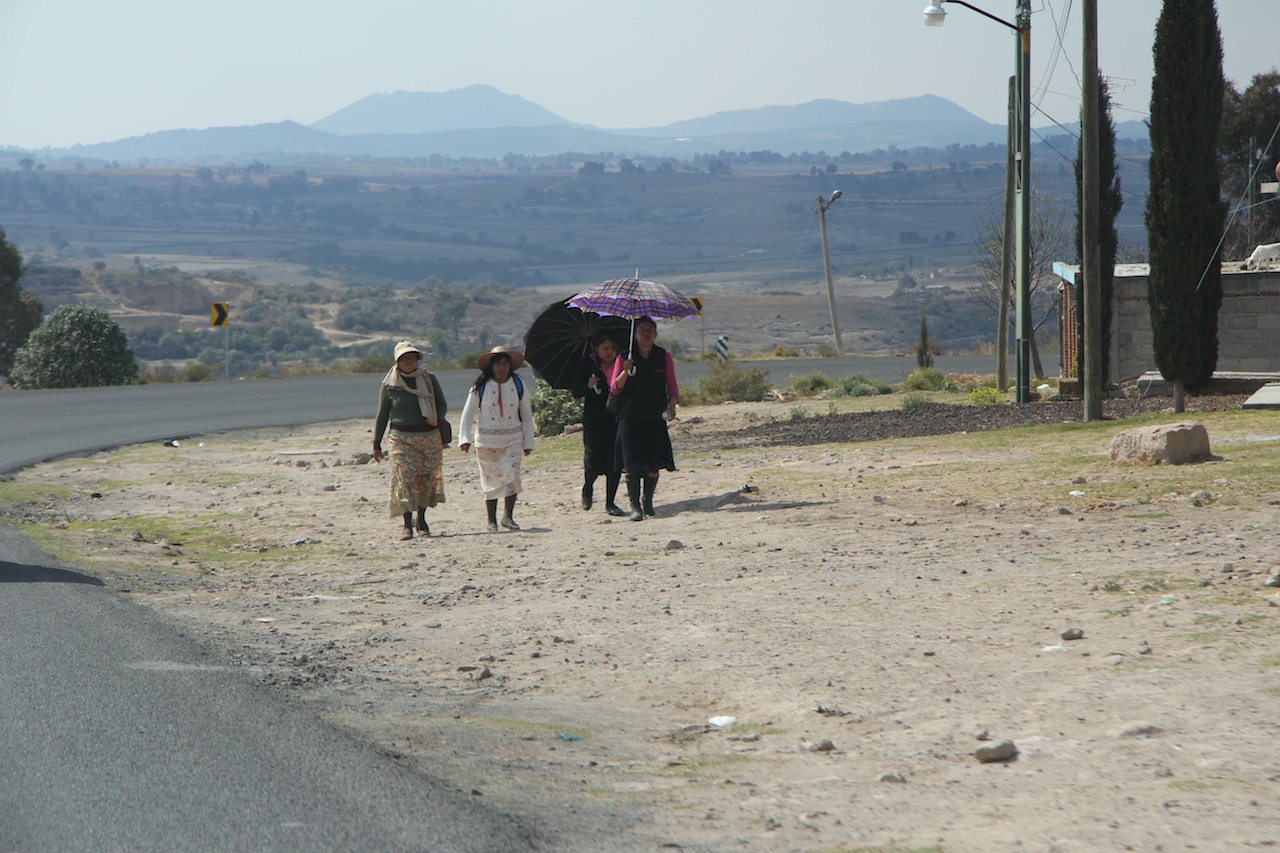

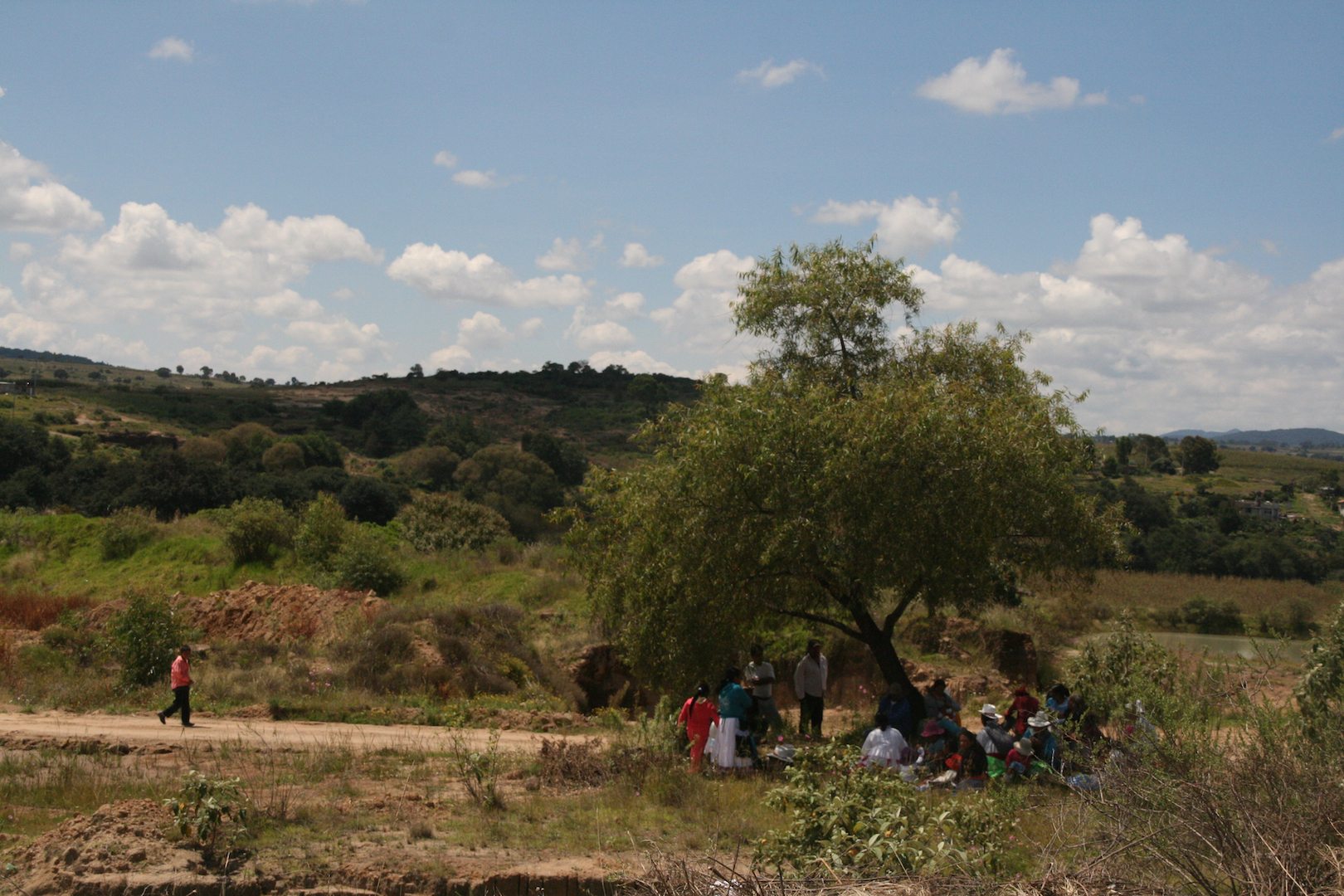
The institute and its goals.
The intercultural institute Ñöñho, a not-for-profit educational institute, was officially opened on the 12th October 2009, the official “day of multiculturalism” in the state of Querétaro.
Their aim is to give young women from the indigenous population basic training in social sciences and business so that they can start socially sustainable small businesses and counter local problems such as structural unemployment and social exclusion.
The beginnings of the institute go back ten years, when it was a small co-operative working on development locally. Today, that little co-operative has grown into a small but professional educational institute – a sort of local university.
Before the institute started its work, there was an investigation of what structural impulses were needed most urgently in the region. Working with various different specialists, including those from the renowned Ibero-American University, it created the degree course “Socially Responsible Enterprise”. Today, the institute is the most important educational institution for people from indigenous backgrounds and the first institution in Mexico offering such a degree programme.
This degree course is intended to enable the young people of the region to found businesses and start projects in their own communities, which have significant structural problems. These businesses and projects create employment whilst simultaneously adhering to ethical social and ecological practices. The graduates of the course can thereby help themselves and the other inhabitants of the region to live with dignity, and support the development of the community and its cultural diversity. The programme is already having its first success – one of the first graduates has founded a ceramics co-operative.
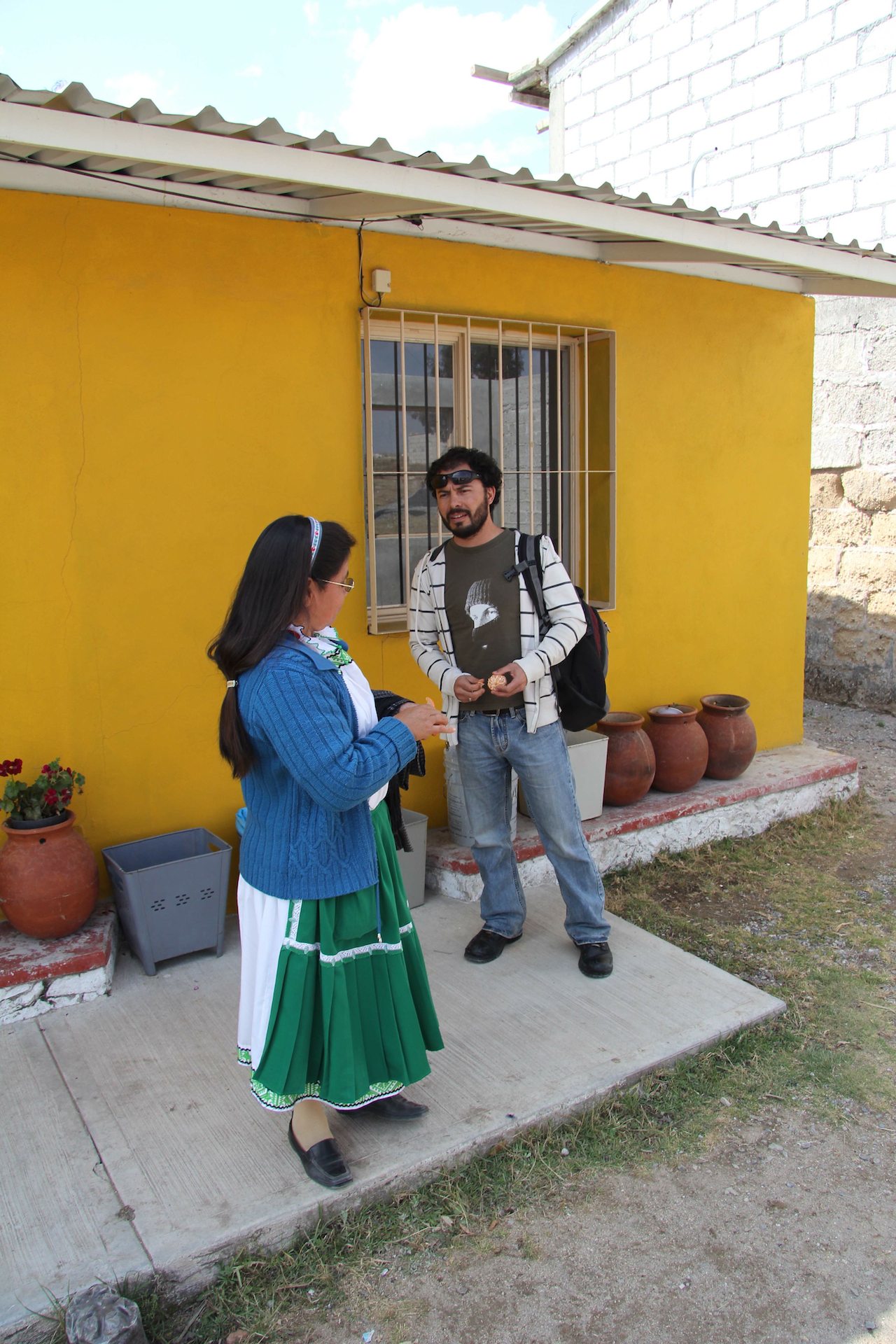
The great challenge of this project is to take the indiginous population, which in recent years has been increasingly marginalised, and integrate it once more into Mexican society in general. In this way, the project contributes to social justice. The aim is to protect and support the unique identity of the indiginous group without trying to avoid the pressures and developments in the western world in the twenty-first century.
The institute is part of a network of several local social projects and enterprises, which includes a neighbouring farming co-operative, a ceramics studio and an indigenous museum
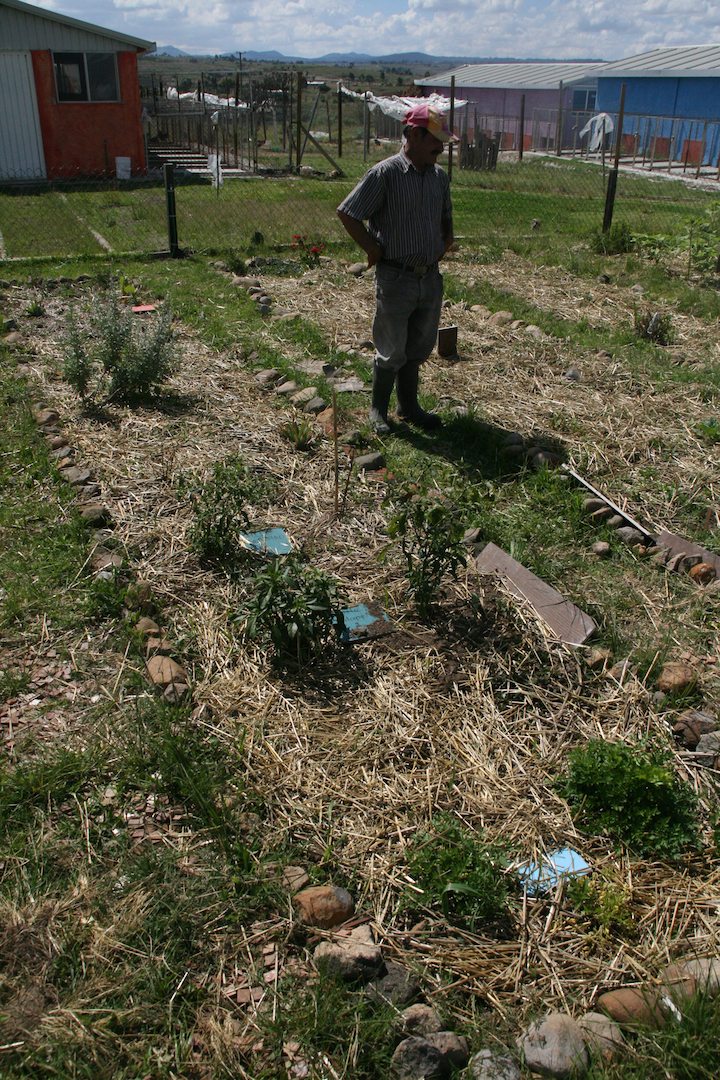
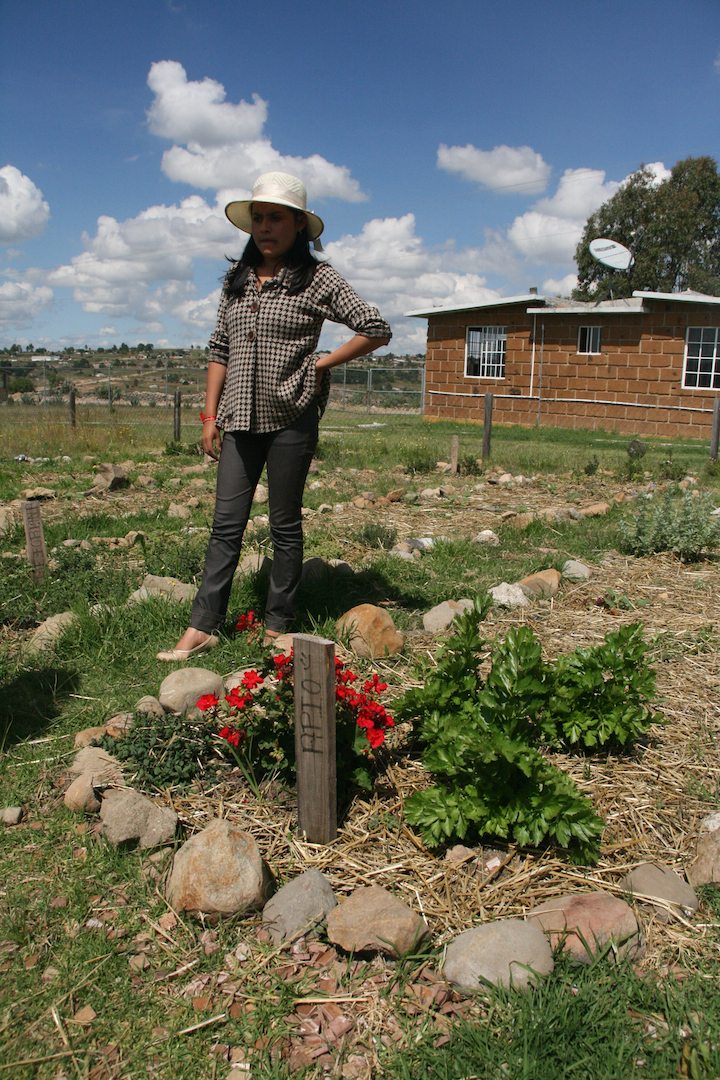
The current Situation.
At the moment, the institute is training 30 young women, eighteen of whom have, thanks to the financial support of the team, started their studies in the last few weeks. They’re being taught by around ten instructors, some of whom are volunteers. Included in the programme „socially responsible enterprise“ are, amongst other things:
– Training the students in the foundation of companies according to the principles of economic solidarity
– Encouraging critical thinking, and showing the students alternative economic models that can facilitate the development and participation of the indigenous population
– Learning more about social entrepreneurship and prjoct management
– Outlining the opportunities and advantages of a society with an active indigenous population
Next steps.
The institute is trying to expand what it offers. In the medium term, additional courses will be offered that offer the region new structural stimulation. One idea is to support local artisan crafts (and therefore the techniques of indigenous cultural crafts), and also to offer a more specifically technical training with an emphasis on ecological farming techniques. There are also plans for distance learning programmes, in order to make the programmes accessible for more indigenous students from even more far-flung regions.




